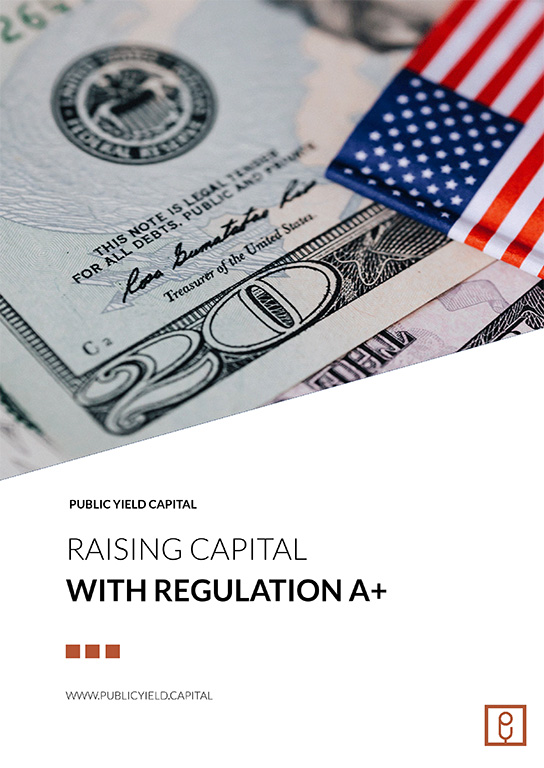
The world of equity crowdfunding has introduced a variety of investment instruments over the years, each with its own set of advantages and challenges. While some platforms encourage founders to sell crowd-specific instruments like the CrowdSAFE or common stock, others, like Wefunder, advocate for retail investors to have access to the same investment instruments as professional angels and venture capitalists (VCs). The instrument of choice? Preferred stock.
But why is preferred stock considered superior to common stock? Let’s dive into the reasons why preferred stock offers significant advantages for both investors and companies, and why it has become the preferred choice in the world of equity crowdfunding.
The Investor Perspective: Why Preferred Stock is Better
One of the core reasons preferred stock is favored by institutional investors—and increasingly by platforms like Wefunder for retail investors—is the protection and privileges it offers. Here’s a closer look at these benefits:
- Liquidation Preference:
The most critical advantage of preferred stock is the liquidation preference. In the unfortunate event of a company winding down or being sold for less than expected, preferred stockholders are first in line to get their money back before common stockholders, which often includes the company’s executives and employees. This protection is particularly crucial for early-stage investments, where the risk of failure is higher. As Naval Ravikant, CEO of AngelList, puts it: “The [liquidation] preference is really, really important at the early stages. You’d be a fool to do a seed round buying common stock.” - Anti-Dilution Rights:
Preferred stock often comes with anti-dilution rights, which help protect investors from the dilution of their ownership stake if the company raises another round of financing at a lower valuation. This protection ensures that investors don’t lose value in their investments due to future financing rounds. - Pro Rata Rights:
Pro rata rights allow investors to maintain their ownership percentage in a startup as it grows. This means that if the company issues new shares, preferred stockholders have the right to purchase additional shares to maintain their ownership stake. - First Dividends:
Preferred stockholders often have the right to receive the first dividends before any are paid to common stockholders. This can be particularly attractive for investors looking for a return on investment even before a company is sold or goes public. - Tax Advantages:
Most preferred dividends are treated as qualified dividends, which are taxed at the same rates as capital gains. This can result in a lower tax burden for investors compared to the taxation of ordinary income from common stock dividends.
The Company Perspective: Why Preferred Stock Benefits Founders
While the advantages of preferred stock are clear for investors, companies also stand to gain from raising capital through preferred stock:
- Attracting Sophisticated Investors:
Companies that offer preferred stock are more likely to attract interest from sophisticated angel investors and venture capitalists who expect these protections and privileges. By aligning the terms offered to retail investors with those expected by professional investors, companies can widen their appeal and potentially raise more capital. - Safeguarding Employee Stock Options:
One of the lesser-known benefits of raising capital through preferred stock is the protection it offers to employee stock options. Employee stock options are typically options to purchase common stock, with the exercise price set at the fair market value of the common stock. When a company raises on preferred stock, the common stock is often valued at a substantial discount (typically 20% to 40%) compared to the preferred stock. This discount allows employees to purchase their options at a lower price, potentially leading to a higher return when the company exits. However, if a company raises on common stock, this discount may not apply, making it more expensive for employees to exercise their options and potentially hurting employee retention and recruitment. - Aligning Investor and Employee Interests:
Offering preferred stock helps align the interests of investors and employees. Both parties benefit from the protections offered by preferred stock, which can lead to a more cohesive and motivated team working towards the company’s success.
In the world of equity crowdfunding, where retail investors are often the company’s biggest fans, customers, and early adopters, it’s crucial to offer them the same protections and privileges as professional investors. Preferred stock achieves this by providing critical protections like liquidation preferences and anti-dilution rights, making it the ideal instrument for raising capital.
For companies, raising capital through preferred stock not only attracts sophisticated investors but also helps protect the value of employee stock options, aiding in recruitment and retention. While there are rare cases where common stock might make sense—such as in late-stage companies with lower risk—preferred stock should be the go-to choice for most startups raising priced rounds.
At Wefunder, we believe in doing what’s right for both founders and investors, which is why we advocate for the use of preferred stock in crowdfunding campaigns. By offering retail investors the same terms as professional VCs, we help ensure that everyone is aligned and protected as the company grows.
Ultimately, preferred stock is “preferred” for a reason—it offers a balance of protection, rights, and alignment that benefits both investors and companies, making it the smart choice in today’s crowdfunding landscape.


